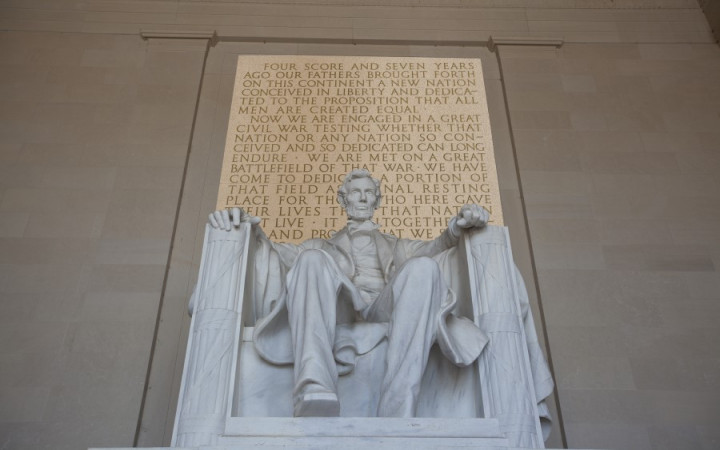Today’s Wonder of the Day was inspired by hakeim. hakeim Wonders, “What was the Gettysburg Address?” Thanks for WONDERing with us, hakeim!
The teacher walked to the chalkboard and wrote “The Gettysburg Address” in large letters. Then they pointed to a student and asked, “Do you know Lincoln’s Gettysburg Address?”
The student turned pale. With a gulp, they slowly answered, “No, I don’t. I thought Lincoln lived in Washington!”
OK, that’s an old joke. But we like it! The teacher wasn’t talking about the address where Lincoln lived, of course. They were talking about a different definition of the word “address.” An address can also be a speech given to a group of people.
The Gettysburg Address is one of the most famous speeches in American history. It was given by President Abraham Lincoln on November 19, 1863. The speech was only 272 words and lasted a mere two minutes. Yet it lives on to this day as a powerful example of Lincoln’s way with words.
The Battle of Gettysburg in Pennsylvania was very important in the U.S. Civil War. Four months after the battle, a ceremony was held to dedicate the Soldiers’ National Cemetery. This is where they buried the fallen soldiers from that great battle. Several people spoke at the dedication ceremony, including President Abraham Lincoln.
Before Lincoln took the stage, the audience heard a speech from Edward Everett. He was a former U.S. Senator and Secretary of State. Everett spoke for two hours about the Battle of Gettysburg. Finally, President Lincoln stood before the crowd of 15,000 people. The first words of the Gettysburg Address have been memorized by countless people since they were first spoken. It starts, “Four score and seven years ago our fathers brought forth on this continent, a new nation, conceived in liberty, and dedicated to the proposition that all men are created equal.”
In only two minutes, Lincoln brought to mind the ideas first set forth in the Declaration of Independence. He went on to praise the sacrifices made by the soldiers who fought in the Battle of Gettysburg. Then, Lincoln said the Civil War was more than just a struggle to save the Union. He stated that it was also a fight for human equality.
This was a new idea at the time. White enslavers had long pointed to the fact that the Constitution did not rule out slavery. But Lincoln pointed to the Declaration of Independence. He saw it as the true measure of the Founding Fathers’ intent. He pointed out that it said the new nation was “dedicated to the proposition that all men are created equal.”
Lincoln also asked his listeners to “resolve that these dead shall not have died in vain — that this nation, under God, shall have a new birth of freedom — and that government of the people, by the people, for the people, shall not perish from the Earth.” Lincoln also noted that “[t]he world will little note, nor long remember what we say here.”
On the contrary, Lincoln’s words at Gettysburg live on as one of the most often quoted speeches in U.S. history. In the words of Senator Charles Sumner, Lincoln “was mistaken. The world at once noted what he said, and will never cease to remember it.”
Have you ever read the Gettysburg Address? Lots of kids learn about it in school. Some even memorize it. If you haven’t heard this important speech, take some time to look it over. Many people think Lincoln’s words still carry a lot of weight today!
Standards: C3.D2.His.2, C3.D2.Civ.13, C3.D2.Civ.14, CCRA.L.3, CCRA.L.6, CCRA.R.1, CCRA.R.2, CCRA.R.4, CCRA.R.10, CCRA.SL.1




